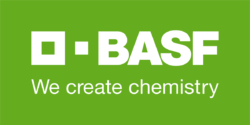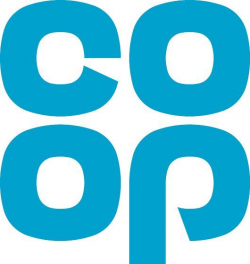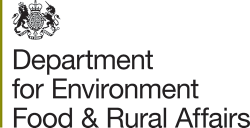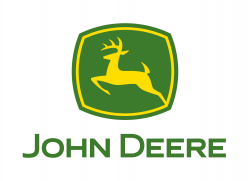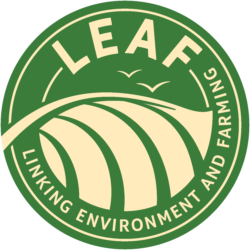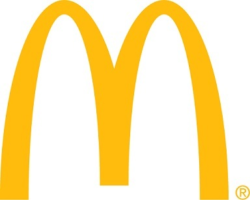Uncle Henry’s, Gainsborough, Lincolnshire
Uncle Henry's is a family run farm shop, butchery and café at Grayingham Grange Farm where they grow wheat and barley alongside rearing pigs. Uncle Henry’s have taken part in Open Farm Sunday for 13 years. Emma Jones is the PR & Event Manager at Uncle Henry’s and here she shares their experience and details how they organise their event.
Over 1000 acres\ Lincolnshire\ 6,000 visitors
Engaging with the public
Seeing our event grow every year and welcoming new and returning visitors to our farm is so rewarding. It is wonderful to watch families spend the day together in a rural setting and engage with our team. Our farm machinery display is always one of our most popular attractions and it is so enjoyable to explain in detail to visitors how we use the machines to help grow crops and how the crops are used. Many people are unaware of their uses, such as our maize crop is used in our anaerobic digester which then provides our electric and heat for the farm. In return we are always rewarded with such amazing photos and feedback from our visitors who have enjoyed the day.
Managing large visitor numbers using the ticketing service
We were delighted with the free online ticketing service that LEAF offered to us in 2018 – which uses the Trybooking system. It helped us to manage visitor numbers and the flow of visitors throughout the day. It was also fascinating to see how far people travelled to come to our event.
We split the tickets into 4 categories - under 2’s, 2-11 years, 12-18 years and adult (over 18) - which helped us plan the event better in terms of age-related activities and attractions. We offered a total of 4,500 tickets online which were fully booked 3 weeks prior to the event. We then promoted to other customers that if they didn’t have a ticket they needed to arrive after 1pm so we could manage the car park.
The main advantage of using this ticketing service was that we could send all the event information directly to the visitor. In previous years, we have had an open gate approach and when we reached 5,000 visitors in 2017, it was difficult to ensure that they were aware of our facilities, event schedule, first aid and safety information such as handwashing etc. We used to hand out leaflets to every car with a site map and information which was an additional cost to cover. By sending this information through the online ticketing service or directing people to our own website with an FAQ section, we printed fewer leaflets and felt that customers were more aware of where to go on site on arrival.
Our car parking field will accommodate 1,000 cars and in previous years groups of visitors would drive separately and meet up here. By sending pre-event emails to everyone we highlighted this and encouraged people to car share so we could welcome more people. It worked as we were able to accommodate 6,000 visitors in 2018.
We will definitely use the online ticketing service again this year! I don’t think that we could host an Open Farm Sunday without it now as we need to control the visitor numbers.
This year we are going to advertise it as a ‘registering service’ as we were unable to scan the tickets if people had them on their phone or printed out. Due to the numbers it was unrealistic to have a printout of ticketholders to mark off at the gate.
We are going to give our farm shop loyalty card holders exclusive access for the first week of release. The second week we’ll promote our event to our customers on our farm shop till receipt, before promoting it on general release on our website and social media channels.

How we promote our event
- e-marketing via Mailchimp
- event newsletter to Uncle Henry’s customers
- Website
- Press release (local and national)
- Local radio
- Village newsletters
- Flyers in local schools - I usually call the school and ask permission then provide leaflets for each class size
- Stallholders that attend - they promote the event through posters or social media
- Local businesses (flyers) including the Lincolnshire Co-op
Helpers
We are very fortunate to have a great team here at Uncle Henry’s but we wouldn’t be able to run the event without volunteers. We have assistance from our local rotary club, NFU, rural charities, arable staff, local farming businesses, young farmers club and cadets. A lot of our volunteers have helped us for many years, even so we always do a walk-through of the event the day before and again on the morning before visitors arrive on site. We also use walkie talkies to answer any queries immediately.
Activities
We split our site into different zones and provide visitors with a site map. The zones are:
- Farm Zone
- Animal Zone
- Market Zone
- Eat Street
- Main Ring Field
Last year in our static Farm Machinery display we had our Shire Horses, vintage tractors and then modern machinery which was a fantastic visual representation of how farming has developed over the past 100 years.
Uncle Henry’s is part of a family farming mixed arable and livestock business, owned by Steve and Meryl Ward. Their three children Emma, Graham and Sam are all now also involved in the business. Our tractor and trailer rides are always popular and we take visitors on a tour of the farm and explain that our main farming enterprise is arable farming and this is looked after by Steve and Sam. We grow cereal crops (wheat and barley), oil seed rape and potatoes. We also have our own pig herd which Meryl looks after. Emma manages the farm shop and café alongside Graham who looks after butchery and external wholesale customers. Emma, Graham and Sam are the fifth generation to live and work at the family farm.
The farm runs an integrated system where the cereal crops on the farm are used to provide feed for the pigs, the straw is used as bedding and any manure produced is returned to the land to reduce our reliance on artificial fertilisers. High welfare pig production and environmental stewardship are important parts of the farming business. The tractor ride takes visitors alongside our pig finishing unit and anaerobic digester so we can explain that side of our story to them.
Our farm is part of the higher-level environmental stewardship scheme which means that the business has committed to maintain existing environmental features including hedgerows, permanent pasture protecting a rare orchid species, and has created new features including floristically enhanced margins, new ponds and increased public access. Our local beekeeper Bob Mould keeps his beehives on our farm which helps our local pollination. Bob jars the honey which we then sell in the farm shop.

Resources
We order everything possible due to having so many visitors so any resources that we can provide to them is fantastic. The cress seeds were a fantastic resource and we encouraged visitors to plant their own egg head using an egg shell at our free seed planting stand. The stickers are given to every child that enjoys a tractor and trailer ride and the worksheets are handed out in the farm zone. We are also supported by our local NFU branch who very kindly bring any spare resources with them on the day and hand them out to visitors as they leave the car park. If we have anything left after the event it does not go to waste as we hand them out to the 30 free school visits that we host over the year.
Questions from visitors
We get asked a lot of things that we might find strange but in fact, it’s quite enlightening to realise that some visitors don’t know how their food is grown by farmers. A lot of children especially don’t know that chips come from potatoes, or sausages from pigs. Being able to take the time to teach visitors something new or answer questions they have is incredibly rewarding.
Health and safety
I think the health and safety is nothing to be fearful of, the risk assessment guide and information provided by LEAF is fantastic and made me aware of areas that I hadn’t considered. I send our risk assessment to our insurer who also checks over the document for me and advises on any potential issues. I am fortunate that we are supported by our local LIVES group and Humberside Fire & Rescue so I can discuss any concerns with them prior to the event taking place. We always have a debrief after the event and I try to photograph any areas that might be of concern, so it is easier to correct them for next year.
Biggest worry
That we don’t meet visitor expectations or provide them with enough information about the event. As the visitor numbers have increased, we have had a few issues that have been highlighted such as toilet locations and a full car park but we always aim to address any issues before the next event takes place.
Finances
We raise money for local charities, Rotary Club, Macmillan, LIVES, Lincs and Notts Air Ambulance and our local church who charge for face painting on the day. This year we raised over £7,000.

Sign up to our mailing list(s)
You are now subscribed!
You are signed up to the mailing list(s) you selected.
If you no longer wish to receive emails from us, every email we send contains a link at the bottom allowing you to unsubscribe with one click. Privacy Policy.



